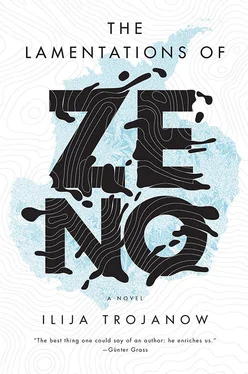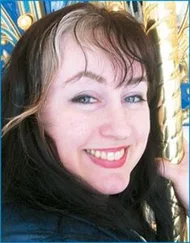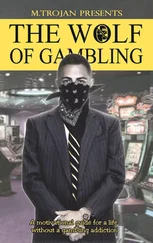Rules, rules, and more rules. Without strict guidelines people would trample over everything, I see that, at the same time it’s humiliating for me to have to force rules on them. One of the least pleasant among my new tasks involves corralling the press. There are always a few journalists on board — the cruise line appreciates the relatively inexpensive advertising in their articles — as well as a handful of relaxed editors and pushy photographers. On the last trip of the previous season there were a dozen, the expedition leader wanted a silent partner sitting in on the meetings to bolster his authority and that’s when I first learned of this duty. Journalists don’t have any special privileges either on board the ship or on land, the idea has to be put out of their head at the start. My predecessor took a strict tone, to me it sounded like the tinny parody of a politician’s call for law and order, I had to suppress a smile and turn away, as though I were expecting something surprising out of the west-southwest. “Is there something you want to tell me?” he asked afterwards.
“Do we have to treat them like they’re educationally challenged?”
“When it comes to dealing with nature, as far as I’m concerned every person on the planet is educationally challenged,” answered the expedition leader who is now lying in a hospital room in Buenos Aires, where he is presumably studying his yachting magazines as attentively as I am studying the faces of the journalists who have gathered around me in a semicircle and who are introducing themselves one by one at my invitation. That gives me a chance to separate the chaff from the wheat, the insightful from the unruly. I form my judgments hastily, instinctively. How is it that the Roman ideal of presumed innocence has endured in our civilization so pervaded with the notion of original sin? The boisterous blonde from Hamburg won’t cause any trouble, she’s brought her boyfriend along for a working vacation, she’ll avoid anything that might make her seem unpleasant. The Colombian cameraman has eyes that suggest an easily ignited insolence, while his accompanying editor gives off an air of laziness, I’m sure he won’t be stirring up anything provocative. The striking young American is clearly nervous and this makes her also seem unapproachable. “I’m Mary from Mother Jones and please no wisecracks.” I look around, wondering what she is alluding to, but nobody seems to get the supposedly obvious joke. I’m certain that the muscular cameraman, who probably wears his dignified smile even in his sleep, will try his luck with her by sharing some hastily concocted witticism as soon as they leave the lecture room. The last in line is a smart-suited man who introduces himself as Dan Quentin’s PR manager and then pauses for a moment as if he were expecting a show of admiring smiles and glances that to my astonishment are indeed accorded, apparently I’m the only one who doesn’t fully appreciate the name. His own business requires a special discussion, as the captain has undoubtedly informed me. Evidently the man is paid to find the right words to maneuver himself into a privileged position. “No,” I answer, “the captain and I haven’t had any time to confer about Dan Quentin, but I’m certain we’ll have that opportunity, for now though I’d like to agree on a few basics. In a word, the same rules apply to journalists as to all other passengers on this cruise. Never leave the paths marked with red flags, never pull anything out of the ground, don’t take anything and don’t throw anything away, not even the tiniest shred of paper. Always keep a distance of at least five meters from all animals, penguins included, and don’t try to blame it on the poor penguins not knowing the rules, we’ve heard that excuse more than once. Like all other passengers you may spend no more than two hours on land, don’t try to carve out any more time. And follow our instructions, if you don’t then we’ll have to leave you behind and you can write a feature about surviving the winter all alone that will make you world famous.” Scarcely have I spoken these words than I begin to doubt whether my approach is any better than that of my predecessor. Then I ask if everyone understood what I just said; after all when people are speaking a second or third language there’s a greater risk of misunderstanding. Dan Quentin’s manager chews on his sunglasses, Mary writes everything down, the editor has the cameraman translate the last portion of my speech in whispered tones (shouldn’t the editor be the one with a better command of English?). Any questions? There aren’t any, because everyone is distracted by what is drifting past. “Aha, the first iceberg,” I try out a lighter tone, but now no one is paying attention, “in two weeks you’ll have seen so many icebergs you won’t even turn your head when one shows up.” As expected, just after my parting words the manager jumps up and runs over and starts speaking at me while he’s still moving, as if I were a typewriter on which he were urgently typing a letter requesting payment. He asks me to speak with the captain as soon as I can, it’s about a project that’s so colossal the logistical demands cannot be underestimated, the artistic vision is explosive and amazingly timely, the Antarctic has now become a project in the hearts of all mankind, Dan Quentin wants to create a sign, he wants to hoist an emotional flag that will be seen across the globe, a symbol for danger and endangerment, he wants to coin a highly original visual currency. Tomorrow after breakfast the manager will come to see me, he’s looking forward to our collaboration. In the meantime Mary has kept in the background, now she breaks away and asks shyly if she might ask me for an interview when I have a free hour. Gratefully I agree.
My students didn’t know what an oxbow is. Some thought it had to do with pastures, others with plowing tools. They weren’t even embarrassed by their ignorance, as if they had a fundamental right to forget about what has been destroyed. Over breakfast on the last day of our summer stay at the glacier I asked them to pack their things before we climbed up for our last visit, and paid the proprietor of Zum Kogl a hundred schillings to deliver the luggage to the station in time for our train. After we had completed one final hike around the glacier I suggested that we make the first part of our return trip on foot. They asked why, and I explained that was the only way to really read a landscape. A few grumbled, but no one dared stay at the bus stop — the ongoing need to prove oneself is a powerful corrective. We gazed down into the valley. From above, the effect of human intervention is quite visible, it’s easy to see what we have done to nature. That was hardly a revelation, even for the students conditioned by city living who didn’t know what an oxbow was. I wanted them to spend at least one afternoon seeing with their own eyes, consciously observing the shrinking fens, the straightened rivers, our civilization’s attempts to impose its own discipline on the natural world. From one ledge where the valley opened up below us like an accordion file, I gave a short lecture about the river meadows as they used to be, until people started thinking of them as worthless land, like alien beings that had wandered into their anthropometric order and needed taming, which is why what we are looking at is land that has been drained and cleared and made useful, where the wet meadows have given way to apple orchards. First the natural state was wiped clean, then cultivation was introduced. But among hundreds of varieties of apple there are only a few that meet the reigning market standards — standards that doom any unregulated growth to failure. Taste and color are determined by chemical analysis. With the screen of our simplemindedness we have managed to sift out all natural variety. I closed my extemporaneous speech telling about a local farmer who a few years earlier was blessed with the tastiest harvest he’d ever had, but he’d been unable to sell because the size and shape of his fruit didn’t correspond to the supermarket norms, he was stuck with a rotting pile of apples he would have gladly given away if enough children had come by. A while later, when we stopped by an Alpine pasture for a snack, several of the students pulled polished Granny Smiths out of their backpacks, they looked at their standardized apples and exchanged embarrassed glances. As they bit into the fruit they may have wondered what a proper apple really tasted like. In one or two cases this curiosity might turn into a persistent yearning, but it would be foolhardy to hope for anything beyond that.
Читать дальше












